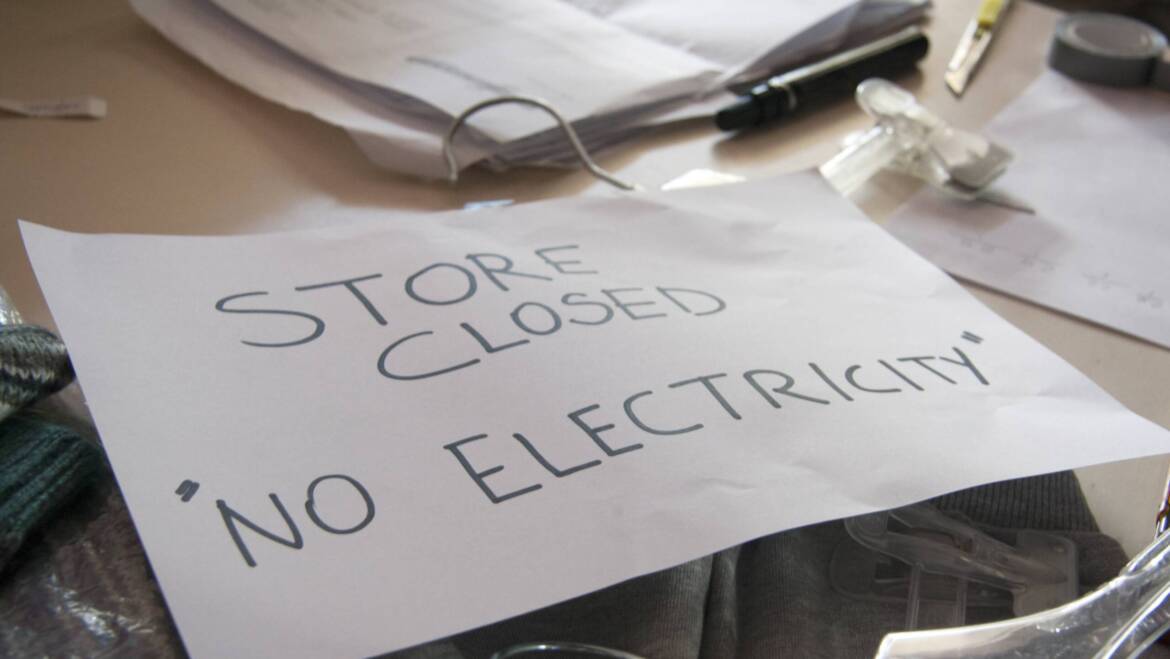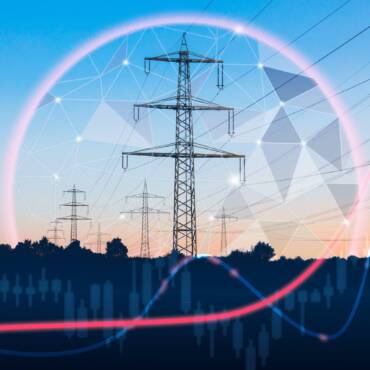Commercial Backup Generators: Protect Your Business, Staff, and Revenue
During power outages, commercial backup generators keep businesses and organizations running. Backup power is provided by these devices when the primary power source fails. Instantaneous power restoration ensures that equipment and operating systems remain operational.
It’s even more important to have an effective backup generator for commercial business if your organization relies heavily on data. Similarly, a business that conducts extensive research and experimentation needs a reliable and efficient generator. Production time and resources are lost when generators fail.
For a better understanding of commercial generators and why they are so reliable, check out the U.S. Power Outage Tracker, which uses comprehensive data and is constantly updated.
Type and Capacity of Commercial Backup Generators
Generator sizes, power capacities, and manufacturers all contribute to the variation of commercial backup generators. When you’ve selected a reliable brand and a size that fits your needs, it’s time to determine the best fuel type for your application. Accessibility, storage, and power output can all influence your fuel choice.
Due to its low purchasing price and efficiency, diesel is a popular fuel. Despite this, diesel burns less cleanly than other fuels and typically takes up more space in outdoor tanks.
Gas is highly accessible and relatively cheap compared to most fuels, but its price fluctuates. Storage challenges arise from gasoline’s short shelf life and high flammability.
In addition to being able to connect to your existing gas line to consume fuel, a natural gas backup generator for commercial business also saves you significant storage space. Besides being eco-friendly, it burns much cleaner than diesel or gasoline. Cold weather and quiet operation are also advantages of natural gas.
Propane is a clean burning, quiet burning fuel, like natural gas. It costs more to store propane on site than natural gas, and propane tends to be more expensive than natural gas. The fuel consumption of propane generators is higher than that of diesel generators.
When one fuel runs out, dual fuel generators provide a backup option. The emissions from a mixed fuel generator are lower than from one that runs solely on diesel, because natural gas engines run cleaner than diesel engines. Furthermore, you can use whatever fuel is more readily available and less expensive.
Whatever the option, a standby business generator is something important to consider for a 21st-Century business — whether the operation or organization is small, mid-size, or large. Keeping the power up and running is important, whether employees are onsite, remote, or hybrid.
Inside a Generator: Engine, Radiator, and Alternator
Despite their physical and electrical configurations for various applications, many commercial backup generators operate similarly.
- The engine. In the same way as any other diesel or natural gas engine, a generator’s engine converts chemical energy (diesel, natural gas, or propane) into mechanical energy. A generator’s maximum power output is directly influenced by the size of its engine. In relation to the maximum output of electricity produced, horsepower is the output of the engine. Commercial engines share some components with consumer engines, such as pistons, engine blocks, fuel injectors, crankshafts, and intake valves.
- The radiator. Engines come equipped with radiators. As such, a backup generator for commercial business use can cool itself in two ways. In most cases, the radiator cools it. However, a heat exchanger can cool it as well. Heat exchangers typically use cool water from an external source to get the job done. During heavy use, these two mechanisms dissipate heat from the generator itself.
- The alternator. A standby business generator produces electricity by channeling mechanical input from the engine. To effectively run and produce electricity, the generator end (alternator) has two main components. There are two parts in an armature, the stator, and the rotor. Stators are stationary components that contain coils wound together and housing an iron core and consist of a set of electrical conductors. Electrons are moved by the magnetic force produced by the rotor (armature) and produce electricity.
How Do Commercial Backup Generators Work?
Now that we know the basics of commercial backup generators, let’s break it all down. How does fuel become electricity? That’s the big question most people have.
An engine is powered by fuel, which feeds the generator. In addition to diesel generators, natural gas generators are also common commercial generator types. A tank attached to commercial diesel generators allows users to fill the tank with fuel and keep the generator running for as long as possible.
A feed or pipeline connects the generator to a natural gas supply pipeline, allowing it to consume the gas. No matter what type of backup generator for commercial business use you choose, you still need to acquire fuel to run the engine. The generator end of the engine converts mechanical power into electrical power.
Generator ends (alternators), as previously mentioned, are composed of two parts: Rotors (armatures) and stators. As a result of the mechanical energy produced by the engine, the rotor (armature) creates a magnetic field that moves around the stator, causing a voltage difference between the wound coils. Generators produce alternating currents (AC). The parts and components of a generator have many detailed processes, but this is how they work at a macro level.
Choosing a Generator Based on Your Needs
Recently, it’s important to consider other critical specifications after choosing a fuel type when it comes to businesses exploring commercial backup generators. Unexpected power outages can last minutes or days. If you rely solely on a generator for power, you may have to run it for an indefinite period of time. Due to their direct connection to your existing gas line, natural gas generators are beneficial for extended outages.
A quiet-running generator is crucial for public and commercial applications such as hospitals, educational institutions, and retail stores, despite noise being irrelevant for some industrial applications. Although some components can reduce exhaust noise, they don’t do much to reduce engine and radiator fan sounds.
In choosing the best standby business generator for your needs, consider whether you’ll keep it inside or outside, especially if you’re considering one that vibrates or has a larger exhaust system. Furthermore, you may want to situate your generator near the transfer switch, which is responsible for activating it in the event of an outage.
During the purchasing process, businesses consider price first. It’s not necessary to buy new generators, since some used or surplus models will perform just as well. It is always a good idea to consult with an experienced and reliable dealer about your best options.
During a Power Outage or Blackout
During a power outage or blackout, a backup generator for commercial business is similar to residential generators. Due to their larger size and higher power output, these generators can power larger business facilities, including key systems and equipment, to help maintain regular operations even in an outage.
The components of commercial generators are generally stronger and more durable than those of consumer generators. A few of the qualities include stronger metals, larger engines, cooling components that dissipate more heat, and electronics that produce higher power wattage outputs. Regarding fuel, business owners most commonly use natural gas and diesel commercial generators.
Portable generators are used by some homeowners. Despite their small size, these units provide enough power to run some essential appliances. Many of these models run on gasoline.
Commercial Backup Generators Ensure Productivity and Revenue
Commercial backup generators can provide continuous power to critical business systems during power outages, thereby preventing lost productivity and revenue. This category includes computers, lighting, HVAC systems, machinery, security systems, and emergency lighting.
Having a backup generator allows businesses to continue operating in the event of a power outage, preventing lost productivity and protecting data and equipment. Businesses must ensure employee and customer safety, while complying with regulations in order to avoid fines and penalties.
A standby business generator protects not only a business’s customers, but also its employees. Emergency lighting provides light and alarms to keep both employees and customers safe.
To protect employees and customers from harm, businesses should also consider convenience, security, and safety. A natural disaster or emergency can also negatively impact morale. It is possible to maintain employee morale by providing a standby generator for commercial purposes that keeps employees and customers safe and comfortable.
In addition to hazardous conditions, suboptimal conditions can also result from power outages. By providing emergency lighting, alarms, and security systems, backup generators can help prevent accidents.
The stress and anxiety caused by power outages cannot be denied. When there’s a power outage, a backup generator for commercial business use can provide a sense of normalcy and security, which can reduce stress and anxiety.
What We’re Talking About
A backup commercial generator can protect your equipment and inventory from unforeseen damage. This minimizes the following risks:
- Time spent waiting. Downtime is detrimental to businesses. The use of a standby generator for business can help businesses reduce downtime.
- Profits are lower. An outage of electricity can result in a loss of profits. By using a backup generator, you can lower the loss of profits by preventing damage to equipment and inventory.
- Equipment damage. Power surges or spikes can damage sensitive equipment. An uninterrupted power supply can be provided by a backup generator in order to prevent this damage.
- Productivity reduced. Equipment and systems can be powered by backup generators to maintain productivity.
- Inability to recover data. A power outage can effectively delete data on computers and electronic devices. Commercial backup generators can prevent these potential data losses for so many businesses across the nation.
Danley 911 Home Services Electrical
At Danley 911 Home Services Electrical, we assist you throughout the entire process — from answering questions regarding helping you prepare for installation, repair, and maintenance to anything else surrounding commercial backup generators, as well as obtaining permits, inspections, and much more. We help you optimize and fine-tune your situation so you get the most out of your investment, as well as determine the correct generator size.
Learn more about commercial generators or contact us today.


